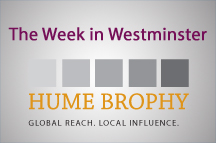 With her famed icy glare, armed with a pun on the title of some stale 1940s comedy, Margaret Thatcher let the 1980 Conservative Party conference know exactly what she thought of those who were calling for a change of direction: “you turn if you want to, the lady’s not for turning.” And just like that, Mrs T made refusing to do a U-turn the ultimate test of political virility. So much so that no Prime Minister has been let off lightly with a tack change since.
With her famed icy glare, armed with a pun on the title of some stale 1940s comedy, Margaret Thatcher let the 1980 Conservative Party conference know exactly what she thought of those who were calling for a change of direction: “you turn if you want to, the lady’s not for turning.” And just like that, Mrs T made refusing to do a U-turn the ultimate test of political virility. So much so that no Prime Minister has been let off lightly with a tack change since.
Fast forward some three decades and the rules of the game have changed. Theresa May now enjoys a near-unprecedented 19-point lead over Labour - a lot of political capital in the bank. This week, she cashed some in: the Chancellor’s plans to increase Class 4 National Insurance Contributions for the self-employed were given a bullet to the head from Number 10.
Fearing a revolt from Fleet Street (significantly this was the first time the Daily Mail had weighed in against her) and her own backbenchers – we must presumably exclude the official opposition here – May tacitly admitted what we knew all along: the planned National Insurance hike broke her Party’s pledge not to raise National Insurance.
With a working majority of just 16 and a tonne of Brexit legislation to work through, it was a battle she’d rather not fight. Ever since the Eighties, Tory administrations have stood four-square behind the country’s growing army of self-employed. They are the quintessence of Mrs Thatcher’s “vigorous virtues” – upward mobility through self-reliance. To penalise ‘their own’ would be an assault on the very strivers May had promised to champion.
So, what does this tell us? Firstly, that the main cost of May’s U-turn is political, not financial. Secondly, and more importantly, that the power of the Tory Brexit right (supported by the popular media) is still growing. They now exercise a veto on even the most modest of reforms, with No. 10 unwilling to fight at this time. Her own party is the effective opposition. And thirdly, the saga brings into question the extent to which the Prime Minister is willing to back her Chancellor. This crucial relationship for any government, and for the survival of any government, has been successful thus far. This is the first crack.
If you’re wondering how the Tories get away with this sort of thing, you may want to watch PMQs. Luckily for May – in what will ultimately define Corbyn’s premiership - the Labour leader failed, again, to fully exploit the biggest U-turn of May’s prime ministerial career. He had clearly prepared a set of questions about the tax hike, only for the Prime Minister to shoot her own fox just minutes before noon. This was bad news for those loyal backbenchers who had been fending off attacks on the Government's behalf for the past week. But even worse for one minister, Rory Stewart, who was caught off guard on BBC Daily Politics, in which he had to switch from supporting the rise to opposing it within the same half an hour slot. OmNICshambles indeed…
Over in DExEU, you can just about hear a sigh of relief from our illustrious Brexit Secretary. Fortunately for Mr Davis, the bravado and bluster of his committee appearance on Wednesday has since been buried under a mountain of stories of embarrassing NIC back-tracks. Just as well for him, for when asked if an economic assessment of Brexit had been made since the referendum, Davis reassured the country when he told colleagues: “If you mean under my time, no” - begging the question what exactly ministers have been doing since June 23rd?
Last, but by no means least, this week also took us back to a time when there were certain constants in politics, when simply keeping up with the news wasn’t the nausea-inducing white-knuckle ride that it has become of late. That constant being Nicola Sturgeon yet again promising to hold a second Scottish independence referendum. But with no sense of irony, Theresa May dismissed the move as “divisive”, before returning to work on making a success of her own divisive referendum result.
Maybe the game hasn’t changed after all…












